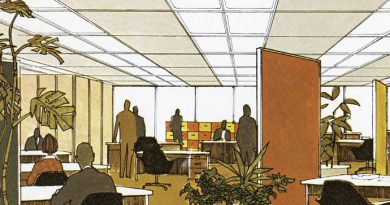AI: Workers need more protection – TUC union
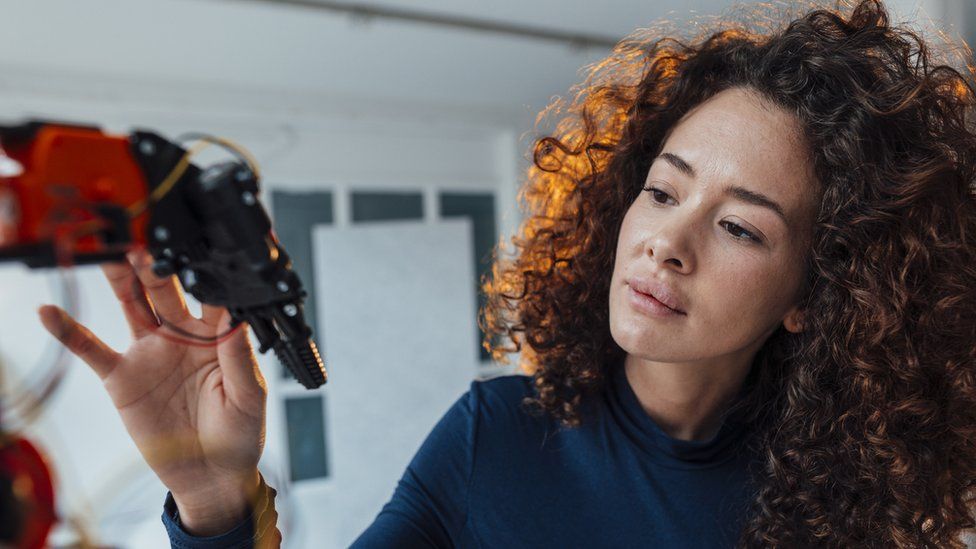
The UK is falling behind in protecting workers from artificial intelligence (AI), a trade union has warned.
The TUC said the UK had no plans, like the EU’s AI Act, to regulate its use in hiring, firing and setting work conditions. The union has asked a taskforce to draft legal protections.
The government said it was committed to improving and upholding worker rights.
It comes as the boss of Octopus Energy told the BBC its customers prefer emails written by AI over his staff.
Business leaders are hailing the potential of AI to spur innovation, productivity and improve customer service.
But unions say they are “deeply worried” that UK employment law is not keeping pace with the AI revolution.
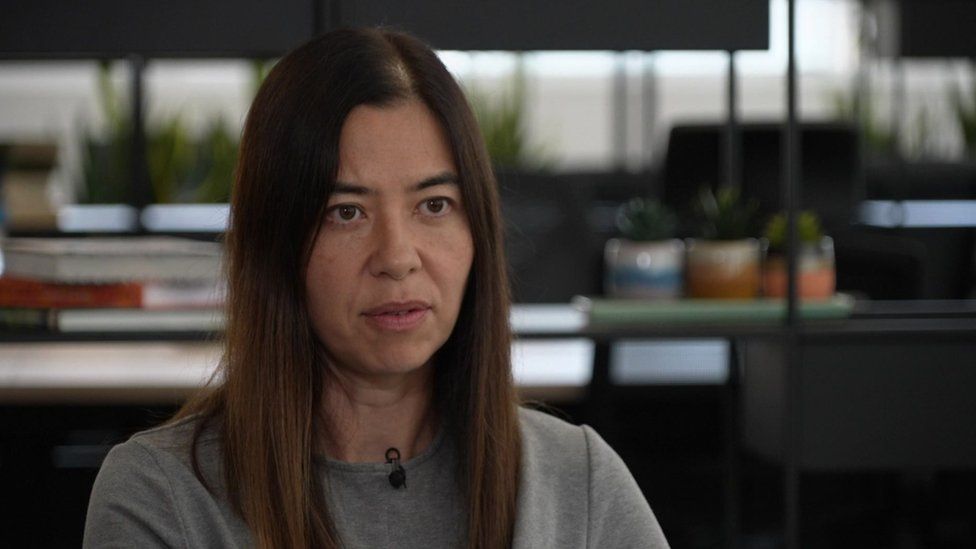
Mary Towers, employment rights policy officer at the TUC said: “The types of decisions that are being made by AI are significant and life changing – for example who should get a job, how work is carried out where it’s carried out.”
A lack of AI specific legislation meant the UK was being left behind, she said. “For example, in the EU, they are in the process of passing an AI Act. In this country, we don’t have any equivalent.”
‘Prefer AI to humans’
At Octopus Energy, AI is used to read, interpret and answer customer service queries. Chief executive Greg Jackson said it was doing work that would otherwise need an extra 250 people.
He said customers appeared to prefer dealing with the AI than with a human.
“An email written by our team members has a 65% satisfaction rating from customers,” he said. “An email written by a by AI has an 80 or 85% satisfaction rating. And so what the AI is doing is enabling our team to do a better job of serving customers at a time of great need.”
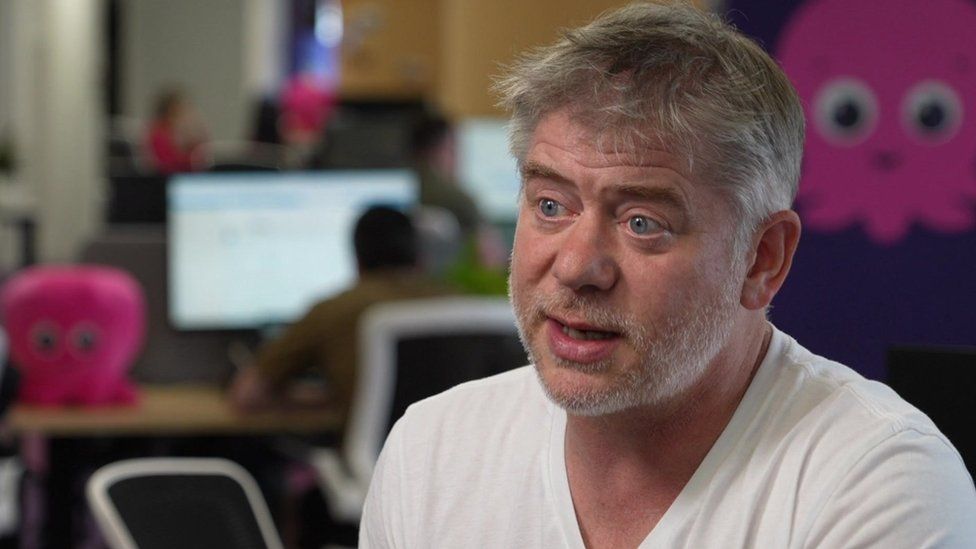
He added that a human commanding an AI to write an email “saves a lot of tedious typing”.
“But we have to ensure this is all done responsibly. And we need governments and economists and businesses to be ensuring that we’re doing this by enhancing and creating jobs, not replacing them.”
‘Better health outcomes’
AI could lead to huge breakthroughs in science and medicine according to the boss of drug giant GSK. Emma Walmsley told the BBC that the speed with which AI could process data and see patterns would revolutionise drug development.
“Biopharma is difficult. It takes sometimes a decade, billions, and it has a 90% failure rate,” she said.
“But we are in the business of data at the heart of what we do. AI is helping us see things in this data faster.”
She said this meant drug and vaccine discovery and development should become “more predictive and improve our probability of success”.
And she said that could mean better health outcomes for hundreds of millions of people.
“One in three of us is going to be battling with dementia, there are still many cancers that don’t have have solutions, infectious diseases are still causing one in six deaths in the world,” she said.
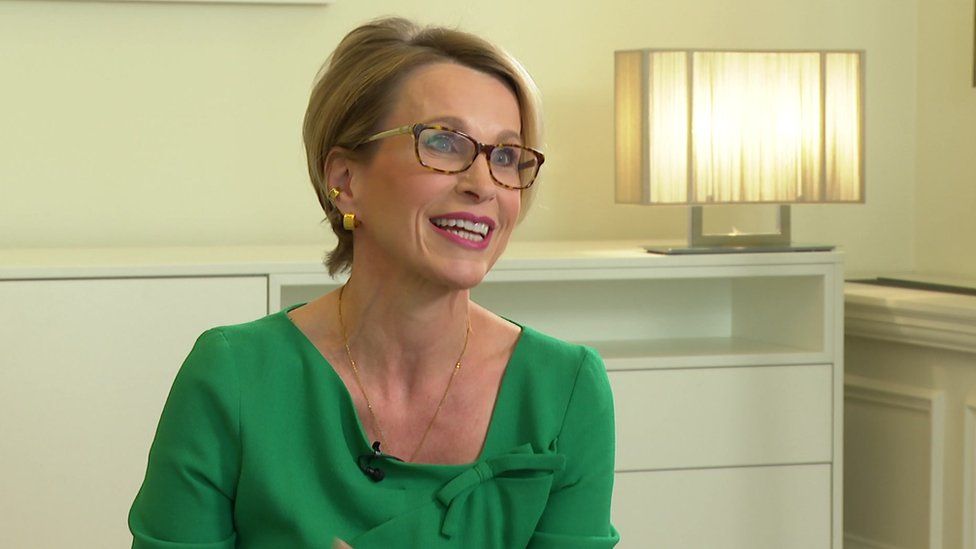
There was “no doubt” that AI would “help us unlock better solutions to these challenges”, she said. “And that’s got to be something worth investing in with optimism whilst regulating responsibly.”
Ms Walmsley thinks improving productivity through the use of AI will create more jobs and “change some jobs quite meaningfully”.
“I think some will need maybe some less headcount on but there’ll be other spaces where we need a lot more,” she said.
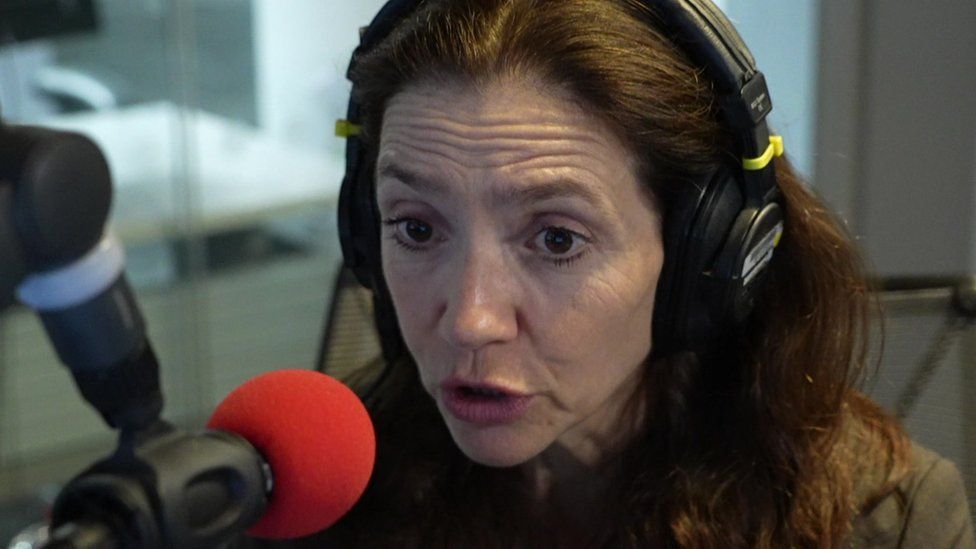
It is sometimes assumed that the creative arts will be the least affected by AI as machine learning will struggle to replicate human creativity.
But that’s wrong according to actress and voice over artist Laurence Bouvard who said that AI is being used to sample, analyse and replicate human voices without paying the original artist.
“When we do a job, in order to get paid, we have to sign away all our rights,” she said. “And these AI companies are just taking it without asking who it belongs to.”
She said AI was a particular threat to the “army” of lesser known artists who voice cartoons, video games, dictionaries and other audio work who could see their careers totally destroyed.
“A writer and an artist and a photographer, even if their work is stolen, they can create new work. If my voice is stolen, if my career is over,” she said.
‘Urgent action’
AI has great power and is already changing industries and the work place. Last week the OECD said the world was “on the cusp of an AI revolution”.
The Paris-based body said: “Urgent action is required to make sure AI is used responsibly and in a trustworthy way in the workplace.”
With great power comes great responsibility – and it is not yet clear in the UK or internationally – who will or who should take on that responsibility.
A government spokesperson said: “AI is set to fuel growth and create new highly-paid jobs throughout the UK, while allowing us to carry out our existing jobs more efficiently and safely.
“That is why we are working with businesses and regulators to ensure AI is used safely and responsibility in business settings.”
Related Topics
-
-
17 hours ago

-
-
-
2 days ago
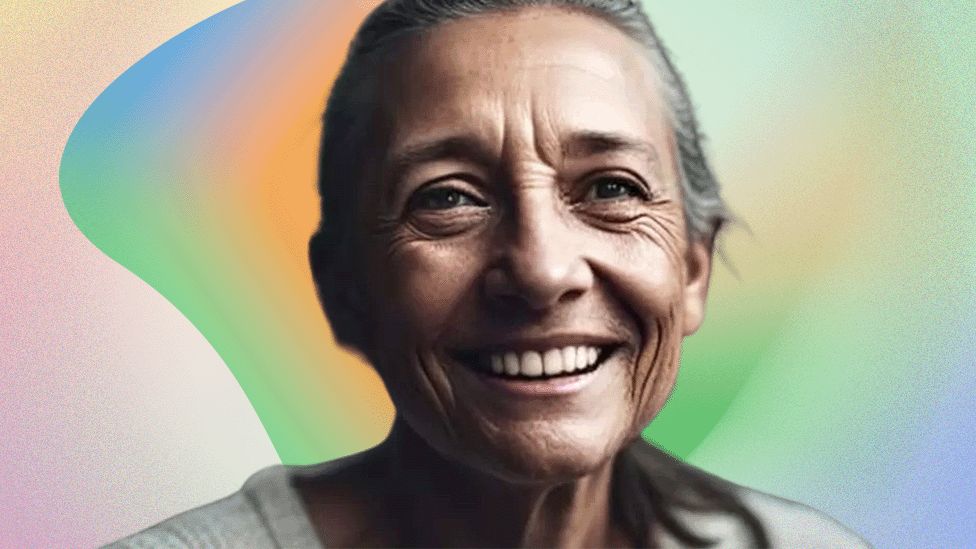
-

